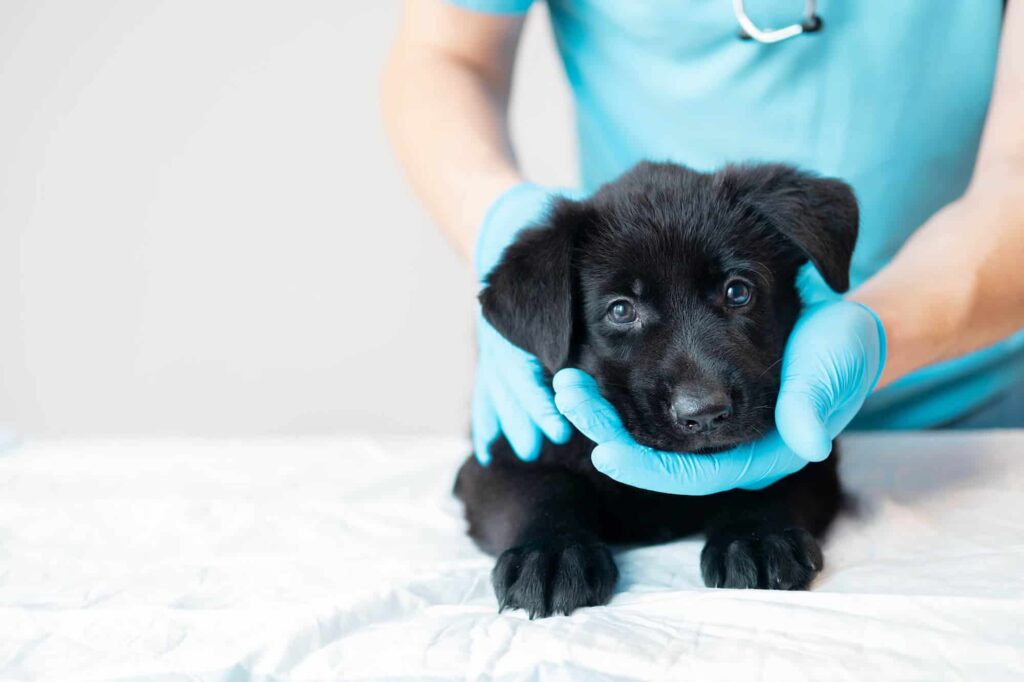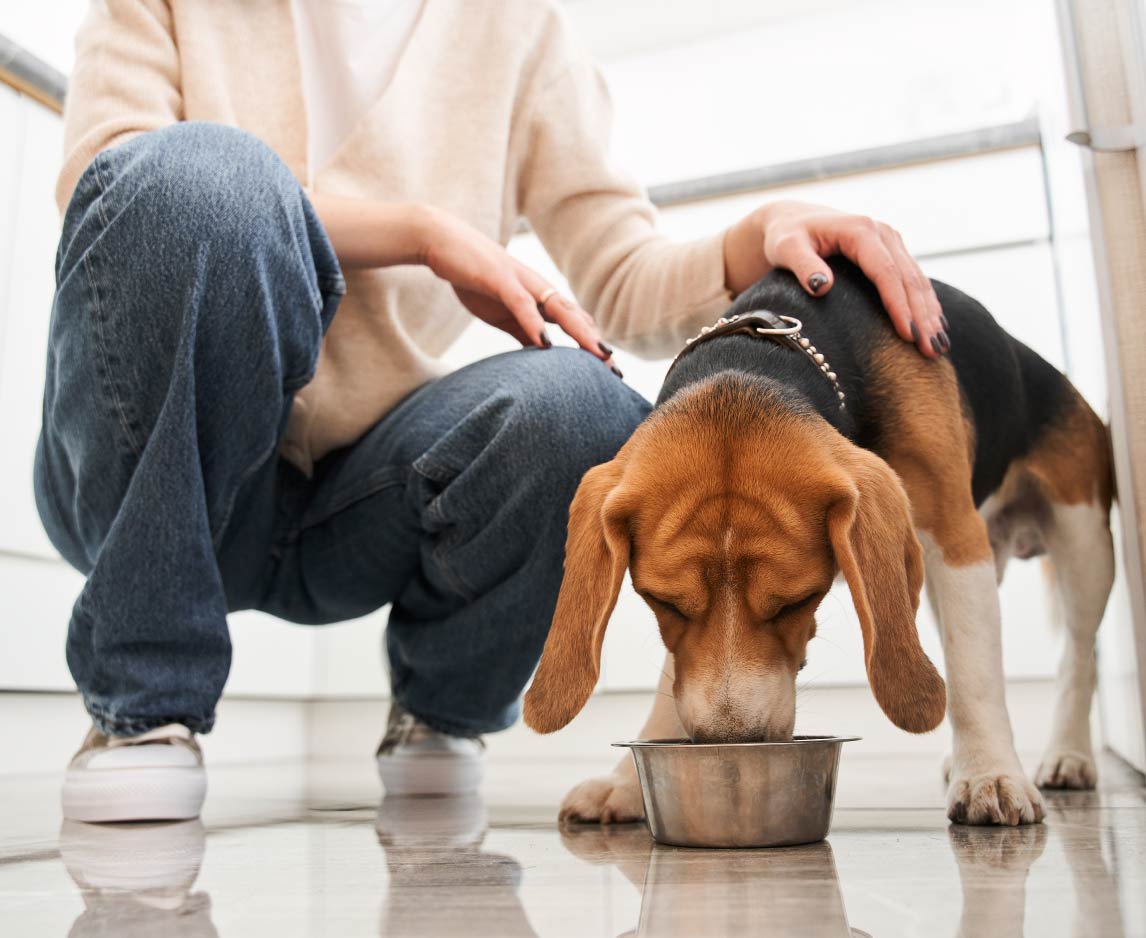Vaccines and vaccination protocols are a common topic in preventative healthcare. But vaccines are available to more than just us people; our canine companions can also benefit from this critical medicine.
In this post, we discuss vaccinations for both puppies and adult dogs. As always, any medical decisions about your pet’s health should be made with a veterinarian’s recommendation and oversight discussion, but this post should provide a foundation for beginning the vaccination conversation.
Why Are Dog Vaccinations Important?
When you’ve got your pet’s best interests in mind, it helps to gather all the facts. Most, if not all, veterinary professionals recommend a standard program of vaccinations that can help dogs to live longer and healthier lives. As the decision-makers for our canine companions, it’s important to know that vaccinations can be an invaluable tool in fighting off infection or minimizing disease symptoms in our furry friends.
Core vs. Non-Core Vaccines for Puppies & Dogs
When it comes to immunization, some vaccines are considered “core,” or recommended for all puppies and dogs, while “non-core” vaccines are recommended based on a dog’s risk of exposure to harmful pathogens.
Core Canine Vaccines
- Canine distemper virus
- Canine parvovirus
- Canine adenovirus-2 (hepatitis)
- Rabies virus
Non-Core Canine Vaccines
- Leptospira species
- Borrelia burgdorferi (Lyme disease)
- Bordetella bronchiseptica (kennel cough)
- Canine influenza
- Canine parainfluenza virus
What Shots Do Puppies Need?
The following are core vaccines recommended for all dogs when they are puppies:
Rabies: With no existing treatment for rabies and a 100% fatality rate in dogs, the rabies vaccine is mandatory by law in all states. Following an initial dose within their first year of life, all dogs need additional inoculations either annually or every three years.
Distemper: This virus attacks the respiratory, gastrointestinal and nervous systems and carries the potential to cause an array of other health problems, brain damage and even death. Distemper vaccination is administered in a series of three doses to puppies between six and 16 weeks of age.
Parvovirus: This vaccine is given in a three-dose regimen to prevent the highly contagious “parvo,” which causes gastrointestinal distress and potentially intense vomiting.
Adenovirus, type 1: Commonly called canine hepatitis, this disease causes severe liver damage and death. Vaccines come in a series of three doses when a puppy is between six and 16 weeks old.
Adenovirus, type 2: This airborne virus is frequently called kennel cough, and the vaccine follows the same regimen as for canine hepatitis.
Every core vaccine except rabies requires an annual booster shot one year after the initial series is completed.
Puppy Vaccination Schedule
The chart below outlines the generally accepted vaccine schedule from the American Kennel Club for a dog’s first year of life. However, it is important to consult your dog’s vet when making individual vaccination decisions.
| Puppy’s Age / Frequency | Recommended Vaccinations (Core) | Optional Vaccinations (Non-Core) |
| 6–8 weeks | Distemper, parvovirus | Bordetella bronchiseptica (kennel cough) |
| 10–12 weeks | DAPP/DHPP (vaccines for distemper, adenovirus [hepatitis], parvovirus) | Influenza, parainfluenza, leptospirosis, Bordetella bronchiseptica, Borrelia burgdorferi (Lyme disease) per lifestyle as recommended by a veterinarian |
| 16–18 weeks | DAPP/DHPP, rabies | Influenza, Lyme disease, Leptospirosis, kennel cough (per lifestyle) |
| 12–16 months | DAPP/DHPP, rabies | Coronavirus, Leptospirosis, kennel cough, Lyme disease |
| Every 1–2 years | DAPP/DHPP | Influenza, Coronavirus, Leptospirosis, Bordetella, Lyme disease (per lifestyle) |
| Every 1–3 years | Rabies (as required by law) | None |
How Much Do Puppy Vaccinations Cost?
The standard series of puppy vaccinations will generally cost between $75 and $100 with an additional $15–$20 for a rabies shot. Dog owners experience some variation based on region and provider, but many animal shelters offer discounted vaccination rates. Often, animal rescue organizations will inoculate dogs and cats for free.
What Shots Do Adult Dogs Need?
After they receive their initial rabies vaccination as puppies, dogs will need additional rabies vaccines every one or three years. Besides this, the core vaccinations for adult dogs include the single-dose canine distemper / adenovirus-2 [hepatitis] / parvovirus / parainfluenza vaccine, commonly referred to as DA2PP, DHPP or DAPP. Veterinarians and dog owners can decide on a non-core vaccine schedule that works best for individual dogs.
Adult Dog Vaccination Schedule
| Frequency | Recommended Vaccinations (Core) | Optional Vaccinations (Non-Core) |
| Annual | Rabies (initial vaccine) | Leptospirosis, Lyme disease, canine influenza, kennel cough (sometimes given every 6 months, per lifestyle or veterinarian recommendation) |
| Every 3 years |
DAPP/DHPP Rabies (after initial vaccine) |
None |
Potential Risks of Vaccines for Puppies
Always inform your veterinarian if your dog has ever had a previous reaction to a vaccine or medication. Since new puppies often don’t have medical records yet, it can be difficult to know if they will react poorly to a vaccine. The most common side effects of vaccination in puppies is discomfort and/or swelling at the injection site. This should diminish and eventually disappear entirely, certainly within three weeks. You may want to stay at or near the vet’s office for 30–60 minutes after vaccination out of an abundance of caution.
While there is a certain level of risk for any inoculation, core dog vaccinations have firmly established track records of safety and effectiveness.
Vaccinations aside, dog owners should be aware of all the ways in which they can support their dog’s lifelong health. This includes ensuring they get regular exercise and that their diet is complete and balanced according to their breed. A biologically appropriate diet with plenty of real protein and minerals will maximize their immune system function and give them the energy they need.
As an AAFCO certified pet food, RAWZ offers complete and balanced meals for all life stages and breeds, which prevents any micronutrient deficiencies that dogs may experience from commercial pet food. Explore our line of delicious and nutritious dog food today, and find RAWZ at an independent retailer near you.
FAQs About Dog Vaccinations
Q: What are antibody titers, and do they replace vaccinations?
A: Antibody titers do not replace vaccines. They are blood tests that reveal the amount of antibodies present in a dog’s bloodstream, so that veterinarians can determine whether the amount is sufficient for protection against a certain disease. Antibody titers are helpful for owners of dogs that have experienced adverse reactions to vaccines in the past, so they can avoid unnecessary exposure to risk.
Q: Why do puppies require a series of some vaccinations?
A: The duration of immunity varies by vaccine, with some requiring multiple injections or boosters after the initial injection. Dogs may not require initial multi-dose vaccines once they are adults, but puppies still have developing immune systems. Their evolving natural defense network may react differently to immunization, which makes the periodic introduction of vaccines necessary to achieve optimal immune response.
Q: Do dogs experience herd immunity?
A: Many dog owners may be under the impression that, with such a great number of vaccinated dogs among us, their dog probably doesn’t need a vaccine. However, no amount of vaccination in a particular species means eradication of pathogens. Not only can a single unvaccinated animal serve as an index case (“patient zero”), but many diseases have the ability to survive in and spread across multiple species, which makes vaccination critical to maintaining herd immunity.





